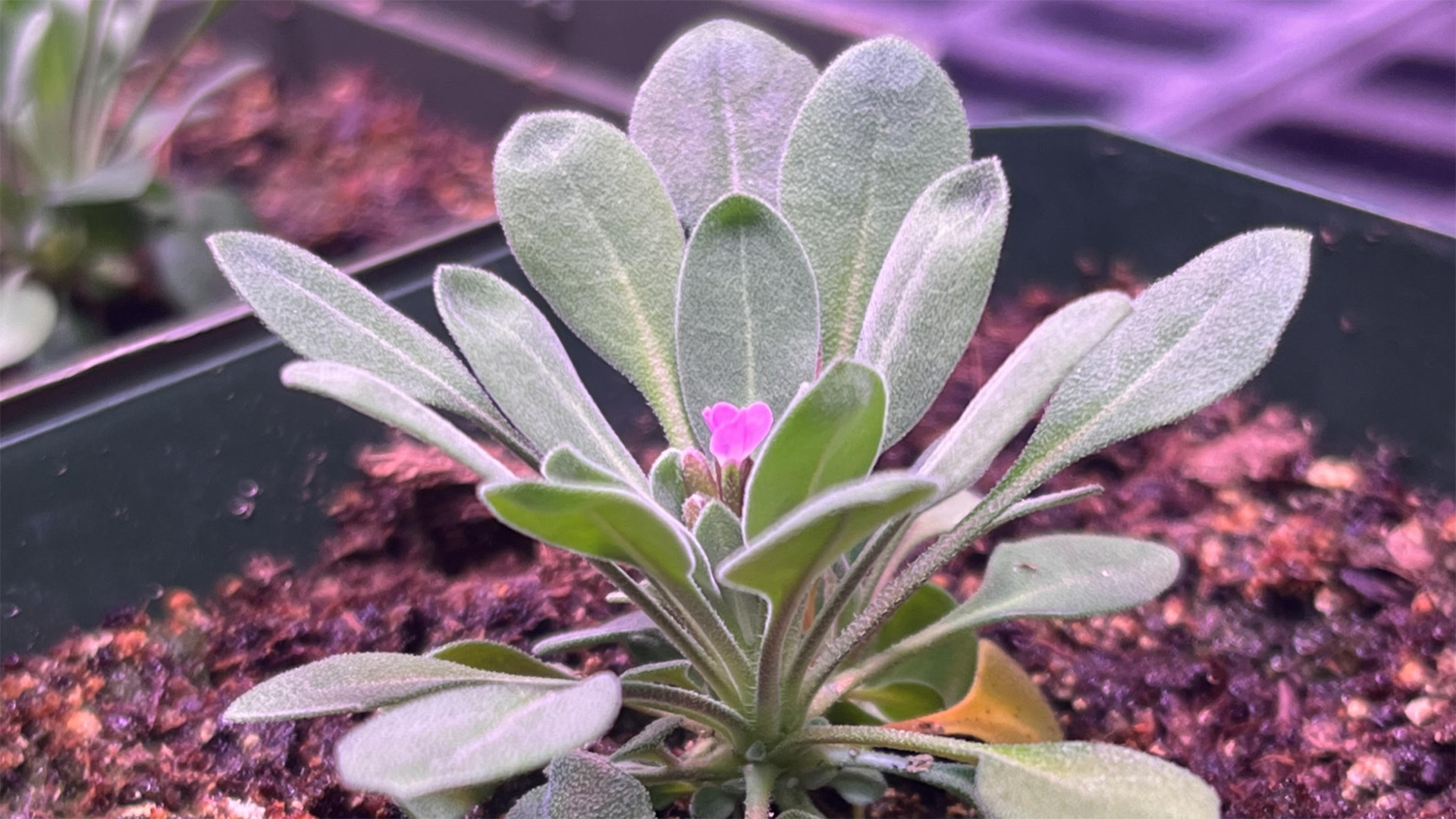- Optimizing Performance of Three Seaweed Species in an Integrated Multi Trophic Aquaculture System With FinfishMikaela Rapp | Thursday, December 18, 2025
- New Life Sciences Building Cements a Family LegacySan Diego State University’s new Life Sciences building will be more than a state-of-the-art facility to support biological research and training — it is already a symbol of legacy going back generations.
- Impact of Heat Stress on Reproductive Success in Arabidopsis thaliana and Boechera depauperataNathen Walton | Friday, December 12, 2025
The Department of Biology Offers the Following Undergraduate Programs:
B.S. in Biology
Emphases Offered:
Cellular and Molecular Biology, Ecology, Evolutionary Biology, Marine Biology, and Zoology.
B.S. in Biology for Single Subject Teaching Credential
Single Subject Teaching Credential in Biology/Life Sciences:
Coursework to demonstrate subject matter competency for the Single-Subject Teaching Credential in Biology/Life Sciences.
(For those who wish to be high school Biology teachers.)
B.A. in Biology
B.S. in Microbiology
Emphasis Offered:
Clinical Laboratory Science and Public Health Microbiology.
B.A. in Microbiology
Minor in Biology
Emphases Offered:
Emphasis in Cellular and Molecular Biology, Ecology, Evolutionary Biology, Marine Biology, and Plant Biology.
Information on coursework requirements for these programs may be found here:
- The Checklists posted below. In most cases, the checklists provide the most useful and current version of coursework requirements for the various degrees and emphases. Students should consult the appropriate checklist each year.
- Your personalized Degree Audit Report (DAR), which can be found within my.SDSU. For students that have declared their premajor or major, this document provides an accurate, up-to-date summary of progress towards the major, and it highlights the outstanding requirements in red.
- The SDSU General Catalog, under Biology. Students are required to follow the degree guidelines for the catalog year in which they entered the Biology premajor, even if those guidelines subsequently change.
Degree Checklists
B.S. in Biology
B.S. in Biology for Single Subject Teaching Credential
B.S. in Microbiology
B.A. in Biology
Minor in Biology
Certificate in Biotechnology
Impaction
Biology and Microbiology are impacted majors. This does not mean that we limit the number of students that can graduate with these majors. Instead, it means that incoming freshman and transfer students are initially classified as “Premajors.” Premajors should be working through introductory coursework, while “Majors” can concentrate on their upper division classes for the major. To move from the premajor to the major requires:
- Completion of the core set of 10 introductory “preparation for major” courses. See the appropriate checklist for details. All courses must be taken for a grade, and the GPA for these “preparation for major courses” must be at least 2.80.
- No grade lower than a C is permitted in any preparation for major course.
- Cumulative GPA in all courses of at least 2.80.
- Meet with the biology advisor if you are not mantaining at least a 2.80 in the preparation for major, and a 2.80 overall GPA.
Changing Majors, or Adding a Major or Minor
Adding the Biology minor
- Download the Biology Minor checklist above. Note that the minor requires either Biology 100+100L, or 203+203L. If you choose the 100+100L option, your coursework choices will be very limited. If you choose the Biology 203+203L option, you must also take Chemistry 200.
- Upper division coursework (Biology 300-599) cannot be shared between two majors, or between a major and a minor. For example, you cannot use Biology 336 for your Biology minor if your major requires it.
- Meet with Ms. Tappen in LS 102 to review coursework requirements and complete a “Declaration or Change of Undergraduate Major and Minor” form.
Add a minor or 2nd premajor (already a Biology or Microbiology premajor/major)
- If you wish to add a minor, or a 2nd premajor, it must be from a department other than Biology.
- Upper division coursework (Biology 300-599) cannot be shared between two majors, or between a major and a minor. For example, you cannot use Chemistry 432 as both a Biology major elective, and a Chemistry major elective.
- Meet with the academic advisor from the department that sponsors the minor or 2nd major, and get a “Declaration or Change of Undergraduate Major and Minor” form signed. Drop the form off in the Registrar’s Office.
- If you cannot locate or contact the academic advisor from that department, try the department Chair. Or visit the Office of Advising and Evaluations in Student Services West. Get a “Declaration or Change of Undergraduate Major and Minor” form signed, and drop it off in the Registrar’s Office.
Add a Biology or Microbiology premajor, or a 2nd premajor (currently undeclared, or have a major in a different department)
- Biology and Microbiology are impacted majors. Admission to pre-Biology or pre-Microbiology from other departments is at the discretion of the Department of Biology’s Vice Chair. Specific requirements must be met in order to change to any pre-Biology or pre-Microbiology major. These requirements are:
- You must complete Chem 200, 201 and Biology 203, 203L. (AP credit for Chem 200, 201 is sufficient.)
- You can take additional Biology or Microbiology preparation for major courses beyond those 4 before applying, but it is not required. See the degree checklists above for a complete listing of preparation for major requirements, and the major requirements.
- You must have a combined 2.8 GPA or better for all preparation for major courses that you have taken.
- All preparation for major courses must be taken for a grade (except for AP credit). You must have a minimum grade of C or better for every Biology / Microbiology preparation for major that you have taken. Note that an excessive number of C grades will bring your preparation for major GPA below 2.8, and you will not be able to change majors or add a 2nd major.
- If you have not yet taken any Chemistry courses, note that every Biology and Microbiology major requires a minimum of 5 semesters as you progress through the chemistry and biochemistry coursework series. Each course is a prerequisite for the next, and you cannot take any of these courses simultaneously. Depending on your science background and which degree you choose, as many as 7-8 semesters may be required even if you have finished your GE courses.
- Read through the impaction requirements above, which apply to your transition from premajor status to major status.
- Meet with Ms. Tappen in LS 102 to review coursework requirements and complete a “Declaration or Change of Undergraduate Major and Minor” form.
Top 5 Tips for Success
- Take a reasonable course load.
- Pay attention to the prerequisites.
- Strike a balance between science and non-science courses.
- Get started on the Chemistry course sequence immediately.
- Meet with the Biology advisor if you are having academic or personal problems.
ucsdbioscisuccess
Follow us on Instagram and stay informed!
Virtual Advising Center (VAC)
Have an advising question? Ask here!
Majors & Minor
Undergraduate program offerings
Admissions
Interested in pursuing a Biology major?
Student Opportunities
Learning outside the classroom
Course Information
Helpful course-related information
Finish in 4
Plan ahead to graduate on time!
Study Abroad
Add a global perspective to your undergraduate studies
Advising
Need assistance navigating your major?
Research
Apply what you are learning in the classroom!
Instructional Assistants
Gain practical teaching experience




